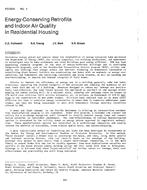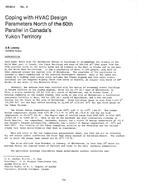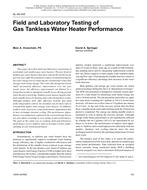Click here to purchase
Cryosurgery is a medicinal technique for destroying undesirable tissues such as cancerous tumors using a freezing process. The cryolesion that is formed is typically on the order of tens of millimeters in diameter, and the lethal zone extends from the probe tip to the location where the tissue temperature is about 240 K. The handheld portion of the cryoprobe must be compact and powerful in order to serve as an effective surgical instrument; a system that meets these criteria is a Mixed Gas Joule-Thomson (MGJT) cycle integrated with a cryoprobe. The next generation of MGJT cycles for cryosurgery is able to provide additional cooling by using a precooling stage that consists of a conventional Vapor Compression (VC) cycle.
Selecting mixtures and precooling cycle parameters to meet a cryogenic cooling load in a size-limited application is a challenging design problem that must be solved through careful consideration of the thermodynamic and transport processes in the system. However, current modeling tools available in the literature for MGJT cycles largely focus on selecting mixtures based on favorable thermodynamic properties and do not include effects of pressure drop or heat transfer for the multi-phase, multicomponent mixture in the complex geometry of a helically wound recuperator/precooler.
Therefore, the focus of this research project is to improve the state-ofthe- art by developing an empirically-tuned mixture optimization model that includes the transport processes in the heat exchangers.
Citation: ASHRAE Research
Product Details
- Published:
- 2011
- Number of Pages:
- 275
- File Size:
- 1 file , 7 MB
- Product Code(s):
- D-RP-1472


